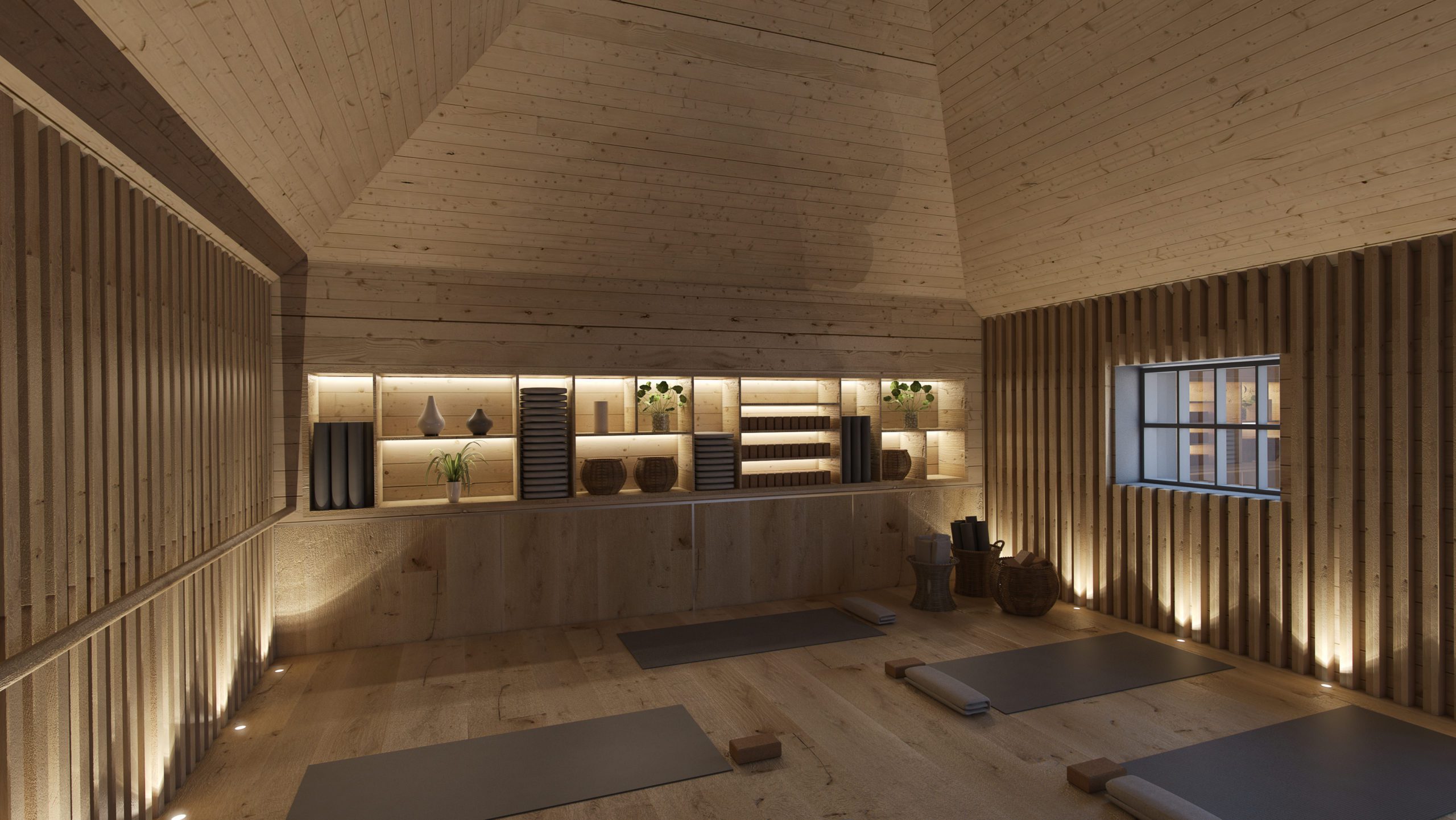
Fitness Vs Wellness: What’s the Difference & Where is the Industry Heading?
Once upon a time, being physically fit was THE goal to aim for. A run before work, a pilates class at lunch, and an hour in the gym once you’d clocked off for the day was seen as something to strive for. And whilst being physically fit to the best of our abilities is, of course, still incredibly important, it is no longer the only objective. It’s time to talk about fitness vs wellness.
We’re going to pause here for a moment, however. Because, as even the most cursory of Google searches will tell you, fitness versus wellness is ‘a thing’ but rather than being pitted against one another, the concepts of fitness and wellness should actually go hand in hand.
So what is the difference between fitness and wellness? Let’s break it down.
Fitness vs wellness: what’s the difference?
Fitness relates to your physical health. Your stamina, flexibility and strength. It’s about exercising, whether that’s in a gym, at the local park, in the pool, or halfway up a climbing wall.
So what is wellness? Wellness, or wellbeing, is best summed up as the absence of both physical and mental illness. It’s about adopting healthy habits so that greater physical and mental health are attainable.
And while the concept of fitness is really confined to how far or fast we can run, how much weight we can deadlift, or how many lengths of the pool we can swim in one session, wellness, as a concept, is a lot broader.
What is wellness?
One of the big differences between fitness and wellness is that fitness is a singular element. Wellness, on the other hand, is linked to your mental wellbeing which is affected by every single area of your life.
For example, your financial situation affects your mental wellness. As does your work, your social life, your relationships, your emotional state, the choices you make, and, yes, your physical health too. And to be clear, these can all be positive or negative impacts.
Crucially all of these different facets of your wellbeing need to balance each other out. For example, you might have a fantastic social life, but if the cost of that is that it’s draining your bank account, your wellness will feel the brunt of your financial worries at some point.
You could feel like everything is under control: your home, social and work life are ticking along nicely – but if you’re suffering from aches and pains, this will be depleting the mental wellness that the other areas of your life have stored up.
So, what is wellness? It’s finding a happy medium, creating balance and thriving – rather than merely surviving.
What different treatments can benefit wellness?
Just as we take steps to improve our physical fitness – the workouts, the spin classes and the aqua aerobics, we also need to actively manage our mental fitness.
In this aspect, the concepts of fitness and wellness are not that different: they both need to be proactively pursued and nurtured.
The good news is that one of the differences between wellness and fitness is that the world of wellbeing can encompass such a huge range of activities. It’s not just about lifting heavier and running faster: it’s about doing whatever makes you feel mentally great.
There are a number of treatments that can really help give wellness a boost and this growing trend in adopting a holistic approach to physical and mental wellbeing is seeing many gym, hotel and spa owners increasingly shift their focus to offering clients and members a more rounded approach to fitness and wellness.
Fitness vs wellness be gone – this is all about fitness and wellness!
-
IV drips
We feel good when we know we’re actively looking after our health and IV vitamin drips have become increasingly popular as the fallout from the pandemic has led us to place greater emphasis on boosting our immunity.
For many of us, a daily multivitamin is no longer sufficient and to tap into this trend, some wellness clinics are now offering vitamin drips which provide clients with an infusion of energy and immunity-boosting vitamins and minerals.
-
Meditation
When we meditate we focus our attention and quiet our minds. This helps to eliminate the cacophony of thoughts that are jostling for pole position in our head, bringing with it a sense of peace and inner balance.
Meditating regularly helps enhance both our physical and mental wellbeing and thus has a positive impact on our health. Dedicated meditation spaces are seeing a huge surge in popularity as wellness facilities recognise the very real need to provide a soothing and tranquil space for their clients to unwind in.
-
Flotation tanks
Flotation tanks, or sensory deprivation tanks, play an important role in mental wellness, allowing the user to escape from their everyday life and its associated stresses by removing stimulus.
Significantly impacting both the concepts of fitness and wellness, thanks to their buoyant Epsom salt and water solutions, flotation tanks not only encourage relaxation, but also enable the muscles to relax and release tension.
-
Reiki
The ancient Japanese practise of reiki is an energy healing technique in which gentle hand movements are used to help guide healthy energy through the body. The intention is to encourage the body to heal its physical ailments, while also reducing stress and creating greater mental wellbeing.
Reiki studios, or reiki healing rooms, are tranquil spaces that allow clients to switch off completely and the reiki master to focus on channeling their energy into healing.
-
Acupuncture
TCM, or traditional Chinese medicine, has been around for thousands of years and is only really just gaining a foothold in the West.
Acupuncture involves inserting very thin needles into the body at certain points to stimulate the sensory nerves in the muscles and beneath the skin. Acupuncture clinics are seeing a rise in popularity and spas and wellness spaces are beginning to recognise the benefits of offering the service to their clients.
-
Saunas
These days even the most basic of gyms often offer sauna facilities. And with benefits purported to range from an increase in metabolism and weight loss to detoxification, increased blood circulation and pain reduction, the humble sauna shouldn’t be ignored.
When it comes to fitness vs wellness, the sauna is an all-round solution. Its ability to help people unwind and relax has an important part to play in stress management but it also helps the skin to rejuvenate and improves cardiovascular function.
The concepts of fitness and wellness in the industry
The industry as a whole is waking up to the fact that the concepts of wellness and fitness are inextricably entwined.
Facilities that were once designed purely to contain a gym and aerobics or spin studios are increasingly making room for wellness and relaxation spaces such as meditation, reiki or acupuncture rooms.
As the difference between fitness and wellness narrows and we start to take a 360 degree approach to our physical and mental wellbeing, the need for venues to cater to all aspects of self care will increase.
We’re all busy and the convenience of being able to go for a run on the treadmill and then have a massage or reiki healing all under one roof cannot be dismissed.
This means that gym, hotel and spa owners will need to consider the design of their different spaces. Do you offer a neon-bright energetic gym and a zen-like bamboo-clad meditation room? Or do you infuse your entire facility with an aura of tranquility, allowing people to work out and chill out in a serene atmosphere?
How zynk Design can help
If the fitness versus wellness debate has you confused about which direction to take when it comes to creating or upgrading your facility, talk to us.
With deep experience in, and understanding of, the industry we can help you create your identity in what can sometimes be a confusing space.
Take a look at our recent hotel and spa projects for some inspiration and don’t forget to sign up to our newsletter below for our regular fitness and wellness design updates.



